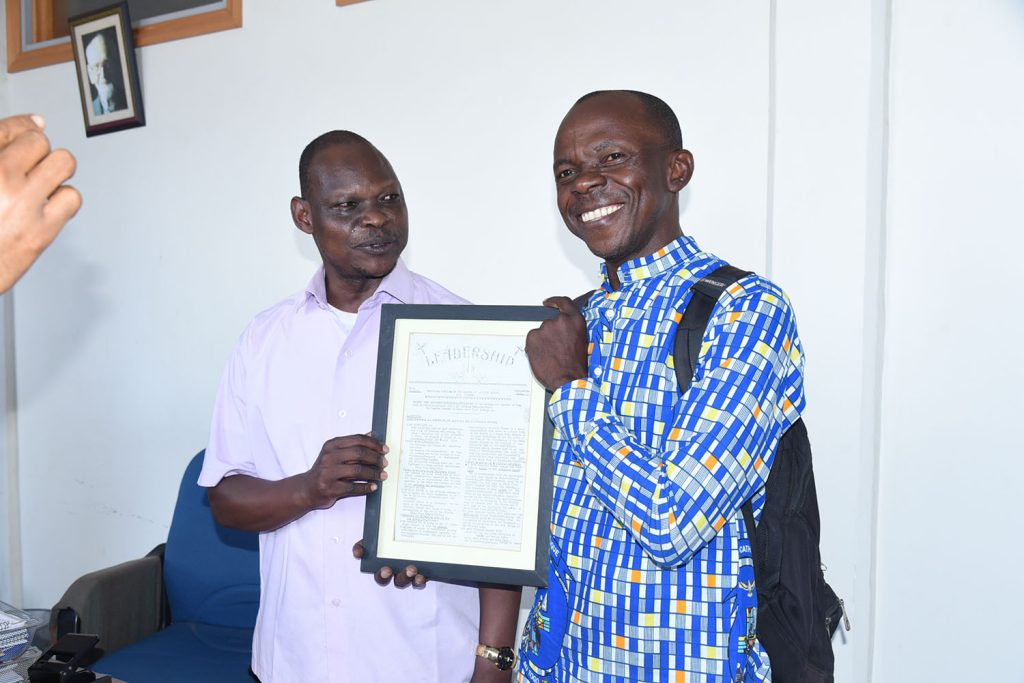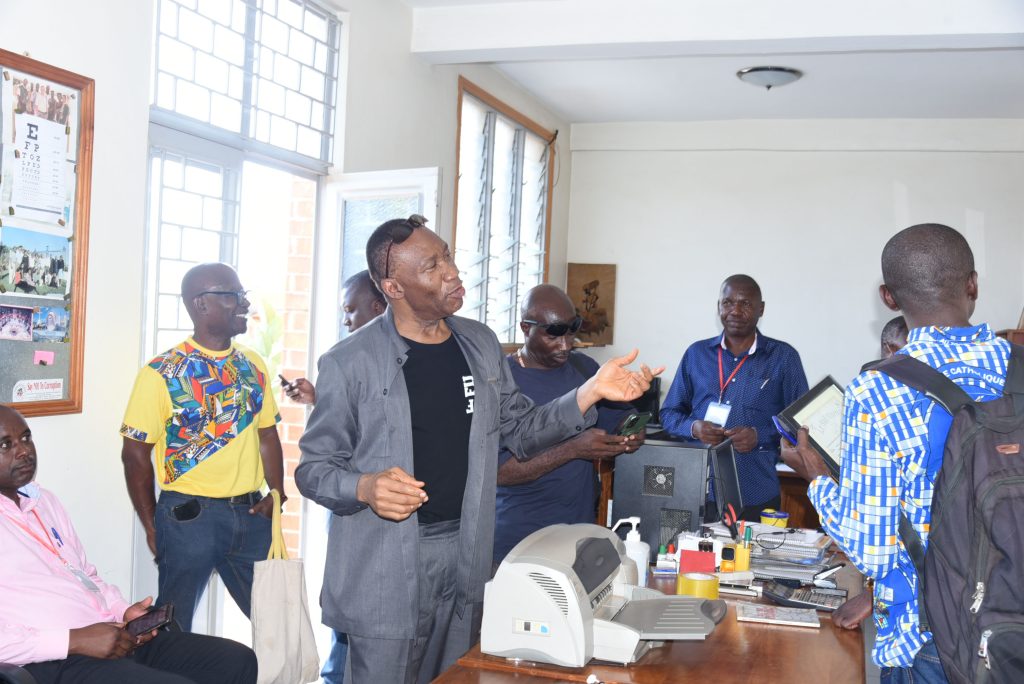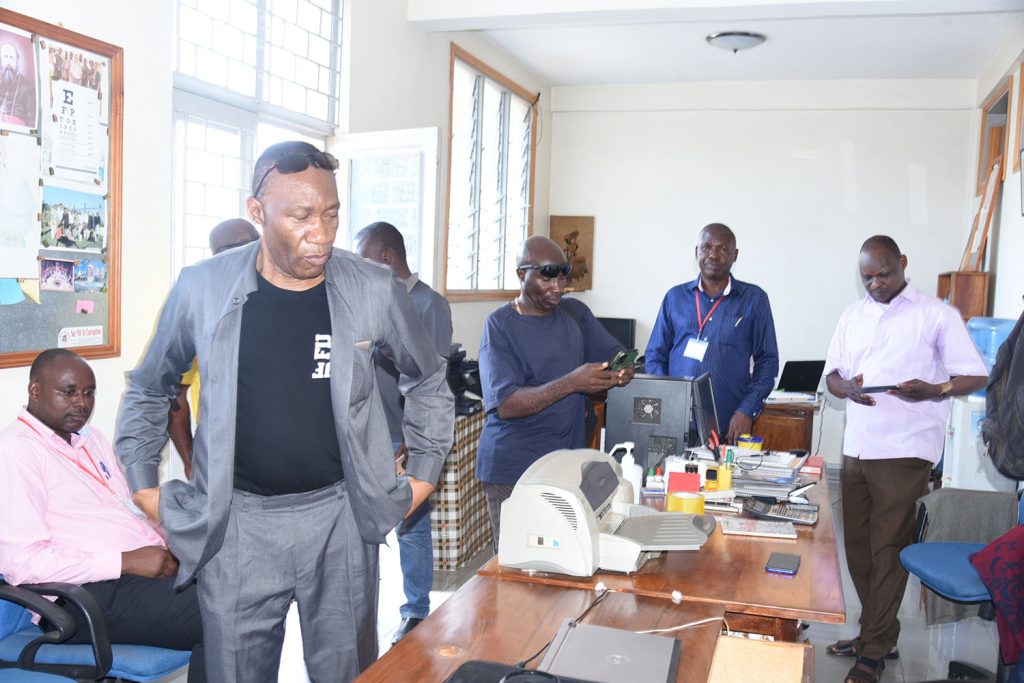Vatican official at the launch of Pan-African Refresher Program on integral ecology in Kampala, Uganda, has raised concern that media practitioners are not reporting adequately about environmental awareness because of being aloof from the reality happening on the ground.
In his introductory remarks while addressing journalists, communicators, and other media professionals from Uganda, Ghana, Nigeria, Oman, Brazil, Germany, and Togo, the Prefect of the Dicastery for Promoting Integral Human Development Michael Cardinal Czerny decried, “Too often, communicators do not hear the cry of the poor, because they lack direct contact with them, and not hearing the cry (means) they cannot report it.”
Emphasizing the need for media practitioners being in close contact with the poor, the Cardinal said, “Having such contact is an important corrective to the manipulation that occurs in society. Otherwise, “political propaganda, the media, and the shapers of public opinion will continue to promote an individualistic and uncritical culture subservient to unregulated economic interests and societal institutions at the service of those who already enjoy too much power.”
The five-day seminar from 5th-11th November is themed “Contribution of journalists and media practitioners for an integral ecology according to Pope Francis’ encyclical ‘Laudato Si’,” with theaimto strengthen the capacities of media professionals and propose effective approaches to solving environmental problems which are integral to the sustainable development of the African continent.
Sharing Pope Francis’ message on how media and communication professionals can hurt society and ecology the Cardinal said, “Overwhelming volume is part of the problem. The superabundance of information, “mental pollution,” can keep us “from learning how to live wisely, to think deeply and to love generously.”
In this case, the Canadian Cardinal narrated, “We filter out opinions and perspectives that differ from our own. We no longer dialogue with those others whom we have “categorized, one way or the other, either to be unfairly discredited or to be praised to the skies.”
Besides focusing on the Encyclical Letter Laudato Si’ on care for our common home, the Cardinal asked conveners of the workshop who are the African Catholic Union of the Press (UCAP) in collaboration with Uganda Episcopal Conference (UEC) to also consider the new Apostolic Exhortation Laudate Deum on the climate crisis and Fratelli Tutti on fraternity and social friendship.
According to Cardinal Czerny, media practitioners disseminate “partial realities and half-truths that ignore the injuries inflicted upon the poor and our common home,” the results of which allow “harmful attitudes, practices, and policies to get a start and grow,” while the elite and the powerful benefit from the loud voice of the media which does not speak out entire reality.
The Cardinal noted that lack of proper reporting leads to negative impacts in society including “forced migration, loss of livelihood, racism, unjust imprisonment, illness, and even death.”
Besides reinforcing power structures that hurt people and nature, the Cardinal said, “Loud media voices can also perpetrate the “technocratic paradigm.” This happens when media are naïve and uncritical about “greenwashing” (where) technologies are called ‘ecological’ to obscure the damage they cause.”
If the media does not perform its rightful duty, Cardinal Czerny narrated echoing Pope Francis’ message that the media may fall into pitfalls.
According to the Apostolic Exhortation Laudate Deum, the “world sings of an infinite Love. This song of praise to God is what an integral ecology amplifies. Media can promote care for creation by echoing this song,” reads part of the Cardinal’s introductory message delivered on Monday, November 6, as it continues, “By “learning to see and appreciate beauty, we learn to reject self-interested pragmatism.” Media professionals can draw close to splendid places in the world, and to the people who live there, and share the beauty and echo their voices.”
The main role of media in society is normally to inform, educate and entertain. With this in mind, the Prelate who was ordained a Bishop and elevated to the position of a Cardinal a day after the Ordination emphasized on the aspect of education as key in environmental awareness and promoting integral ecology.
“Let us focus on education, which connects with the principle of subsidiarity; and on information, which underpins solidarity,” The Cardinal said and expounded, “Communication that educates helps those suffering the stresses in nature and society to analyze what is happening and formulate responses; this prepares them to be effective partners of more distant actors who, guided by subsidiarity, wish to see them lead in achieving the common good.”
Besides, he continued, “Communication that informs creates awareness, generates networking, and connects those struggling in bonds of solidarity.”
The Cardinal concluded by reminding Catholic communicators “to help “provide a response to new problems and to react with global mechanisms to the environmental, public health, cultural, and social challenges, especially in order to consolidate respect for the most elementary human rights, social rights and the protection of our common home.”



Sr. Jecinter A. Okoth, FSSA



Leave A Comment